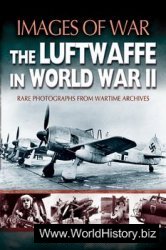The prophet of the 1890 Native American Ghost Dance was Wovoka (1856-1932), a Paiute in Nevada who had been trained as a religious healer by his father. Wovoka’s role as the Prophet of the Ghost Dance began in 1888, when he received revelations from the other world concerning a transformation of Indian society and a return to traditional ways. In January 1989, while ill and during a solar eclipse, he went into a trance and experienced an out-of-body experience. Upon his return, Wovoka began preaching the necessity and benefits of the Ghost Dance:
All Indians must dance, everywhere keep on dancing. Pretty soon in next spring Great Spirit come. He bring back all game of every kind. The game be thick everywhere. All dead Indians come back and live again. They all be strong like young men, be young again. Old blind Indian see again and get young and have fine time. When Great Spirit comes this way, then all the Indians go the mountains, high up away from whites. Whites can’t hurt Indians then. Then while Indians way high up, big flood comes like water and all white people die, get drowned. After that, water go away and then nobody but Indians everywhere and game all kinds thick. Then medicine man tell Indians to send word to all Indians to keep up dancing and the good time will come. Indians who don’t dance, who don’t believe in this word, will grow little, just about a foot high, and stay that way. Some of them will be turned into wood and be burned in fire.
Source: Brown, D. (1991): Bury my heart at Wounded Knee: An Indian history of the American West (p. 416). New York: Henry Holt.
Crossbows, and handguns, wielded by well-drilled infantry units, could withstand and repel cavalry charges. This altered long-standing military balances within Eurasia, making the superior numbers of civilized armies effective against steppe horsemen as never before. China and Russia were the principal beneficiaries and by 1757 the last steppe nomad confederacy was reduced to dependence as their expanding Imperial frontiers came together. Almost

A costumed mime performing a ritual in a public square in Guadalajara, Mexico in 2003.
Simultaneously British, French and Dutch agents established extensive overseas empires in Asia and eventually in Africa as well, thanks to victories won by surprisingly small, well-drilled forces, fruited in large part among local populations, and obeying European commanders. The psychological effect of drill was never more clearly demonstrated than when Indian, African, and Indonesian recruits, moving together in unison, learned to obey European commanders. Older social ties were almost wholly superceded among them by a new collective solidarity that made men of diverse backgrounds into obedient instruments of utterly alien European intruders.
Meanwhile, similar armies, recruited from city slums and impoverished rural communities, strengthened European governments at home, sustaining the aristocratic and privileged urban classes of Europe’s old regime.
The French Revolution of 1789-1815 expanded the role of army drill among Europeans, creating citizen armies on the model of the Roman republic. The French example proved contagious, so by 1914 almost all European governments drafted young men for a year or more of military training and assigned them to reserve units throughout their active years. Such military training involved long hours of drill and patriotic exhortation that proved very effective in superceding village ties with new national identities. Accordingly, during World War I, national rivalries sustained mass armies, numbering in the millions, through four years of military stalemate, before ending with the sudden collapse of Germany and its allies when hastily trained American soldiers arrived on the Western Front to reinforce the flagging French and British. World War II (1941-1945) turned into an even more destructive disaster for Europe; and transformed Asia and Africa by making European empires unsustainable. In every theater of war the power of drill to create obedient soldiers manifested itself; and as Asians, Africans, and Americans began to participate actively in the two World Wars, new national identities took hold among them, thus ending Europe’s temporary dominance. Economic and demographic changes worked along parallel lines; but military drill among Asians, Africans, and Americans was what triggered this worldwide shift of power.




 World History
World History









